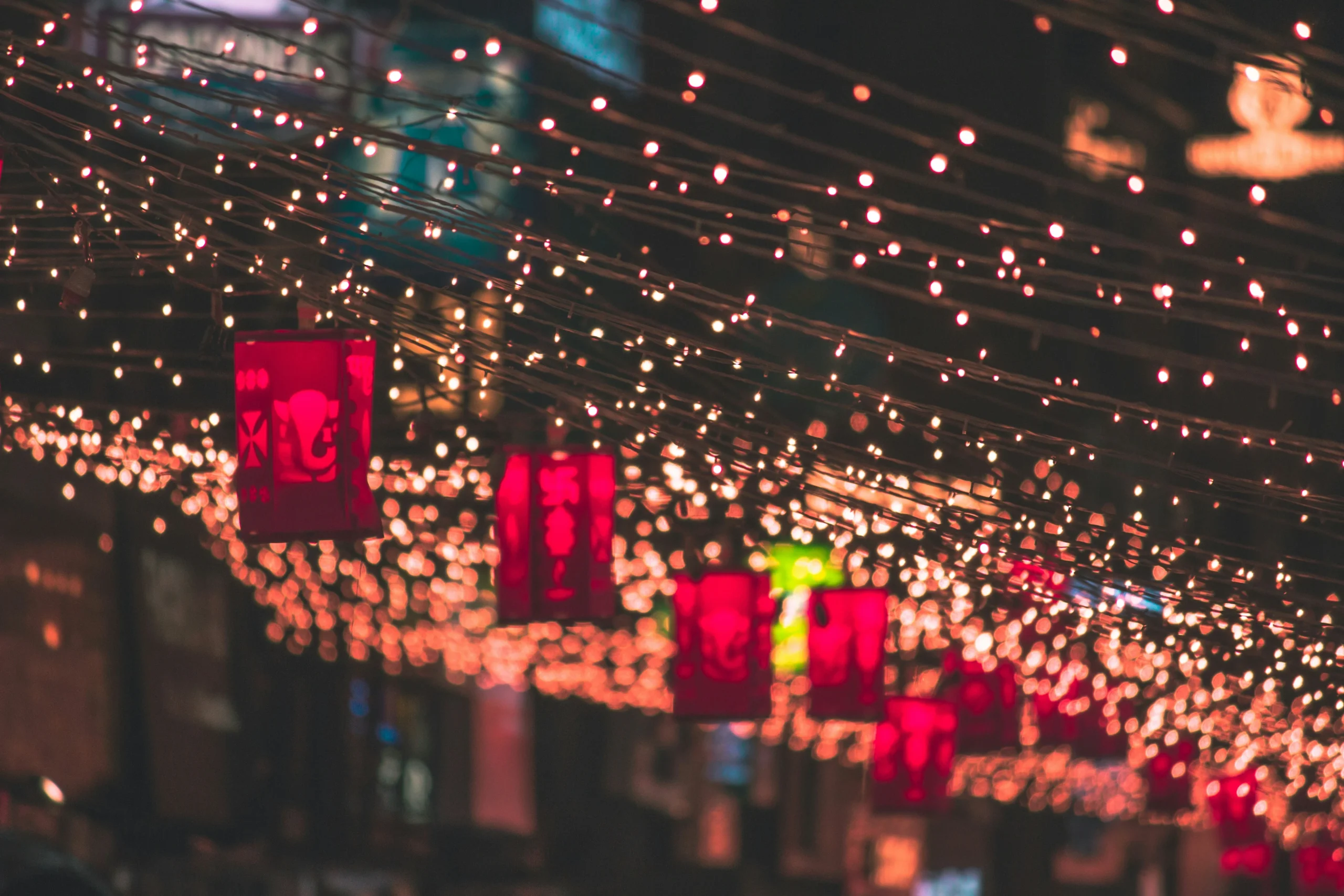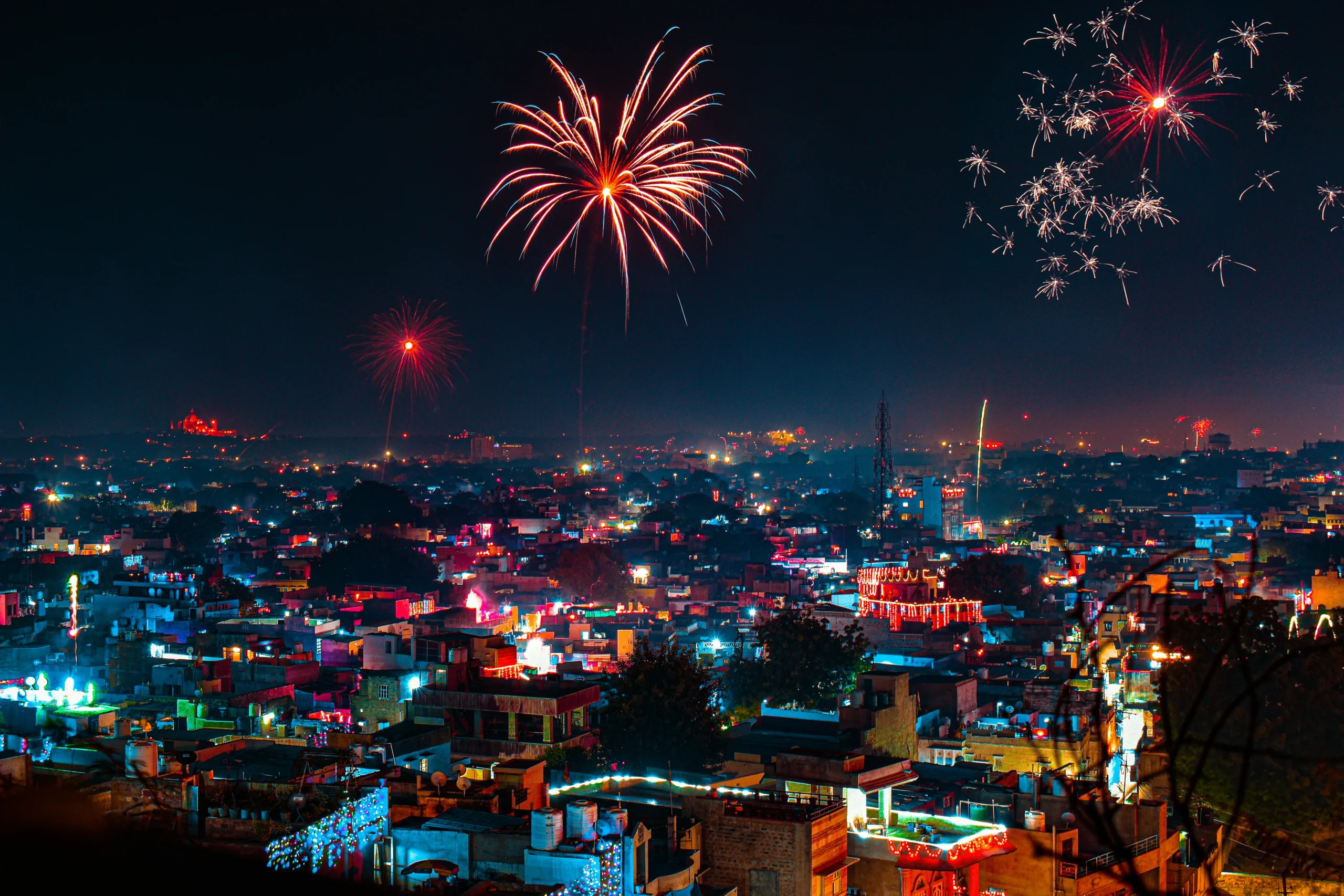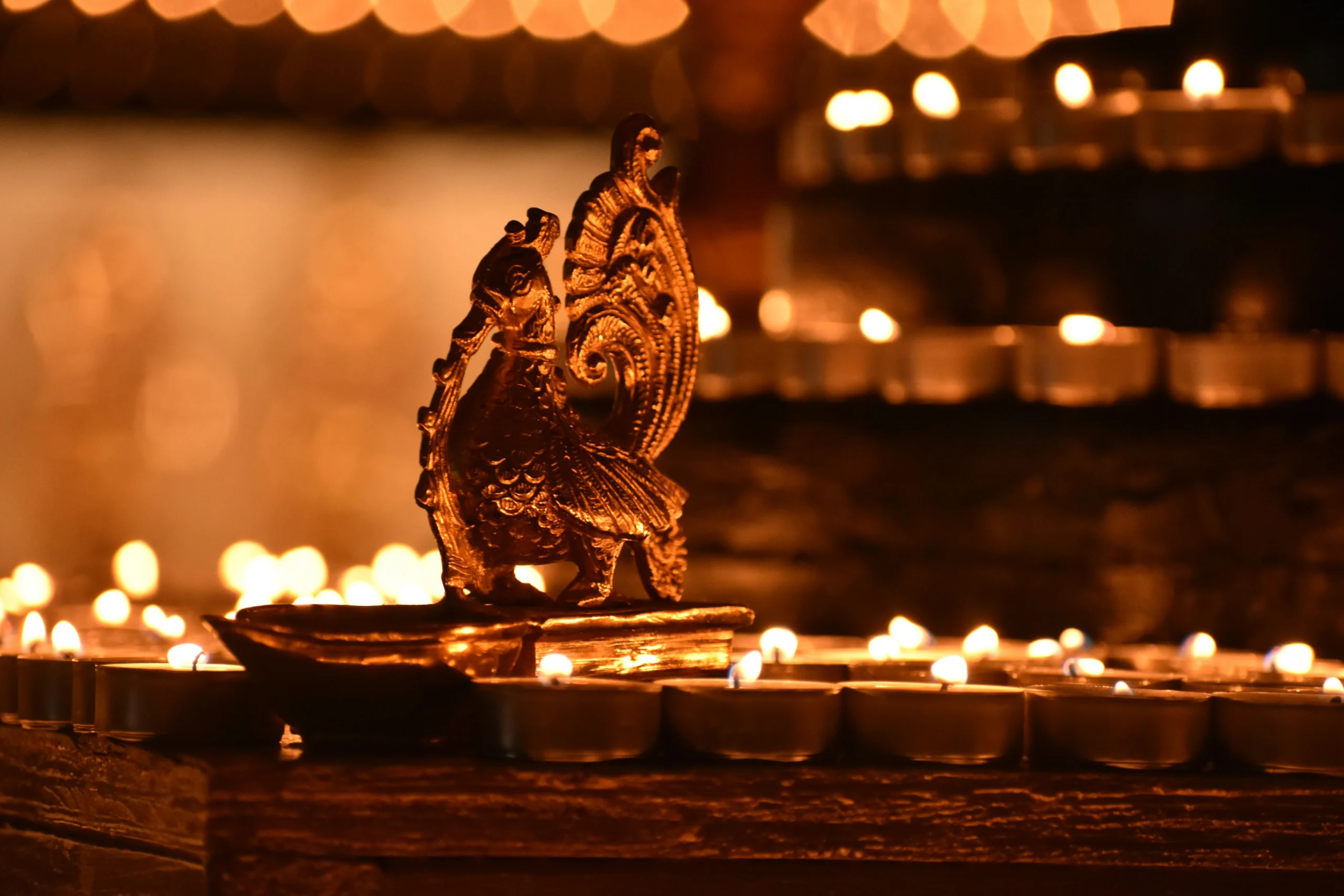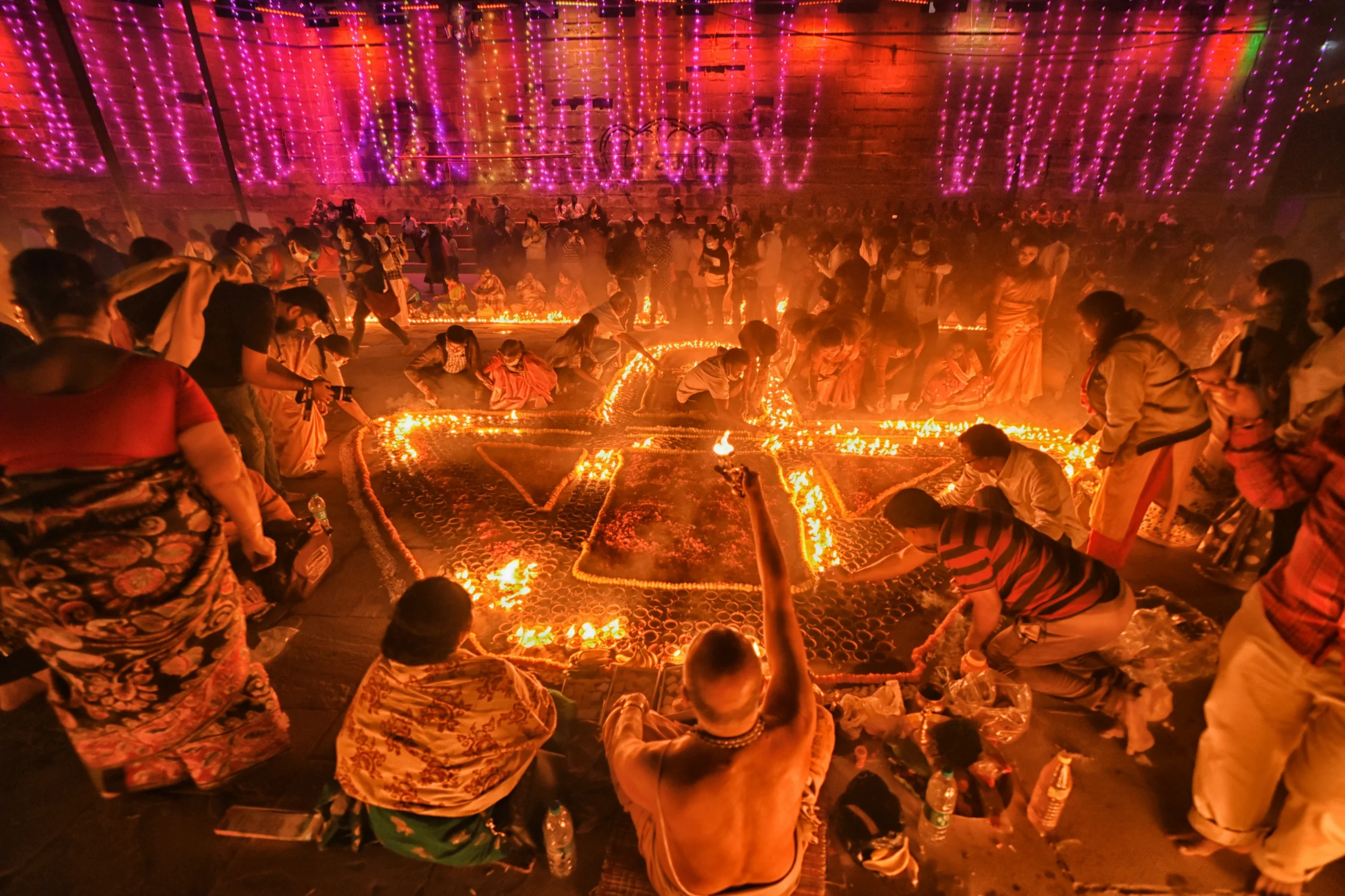How Many Days Until Diwali? The Official Countdown



The Final Countdown to the Festival of Lights
Day(s)
:
Hour(s)
:
Minute(s)
:
Second(s)
What is Diwali
Diwali, also known as Dipavali, is a major festival celebrated in Hinduism, Jainism, and Sikhism. It lasts for five days and begins on the 13th day of the dark half of the lunar month Ashvina and ends on the second day of the light half of Karttika. In the Gregorian calendar, it usually falls in October or November. The name Dipavali means “row of lights,” symbolizing the victory of light over darkness. The festival is marked by various observances and traditions that differ by region and belief system. Diyas, or small earthenware lamps filled with oil, are lit and placed in homes. Worship is commonly offered to Lakshmi, the goddess of wealth. In Bengal, the goddess Kali is worshipped. In North India, Diwali marks the return of Rama, along with Sita, Lakshmana, and Hanuman, to Ayodhya after defeating Ravana, linking it to the Dussehra holiday. In South India, it commemorates Krishna’s defeat of the demon Narakasura. Some traditions view it as the marriage of Lakshmi and Vishnu or her birthday.
Why Diwali is Called the Festival of Lights
The reason Diwali is called the festival of lights lies in its illuminating beauty. Diyas are lit and placed on the parapets of temples and houses, as well as floated on rivers and streams. Homes are beautifully decorated, and the floors are adorned with rangolis—colorful designs made using colored rice, sand, or flower petals. Every door and window is opened to welcome Lakshmi, who is believed to bring wealth and success into well-lit homes. The lighting of diyas not only brings a magical ambiance but also holds spiritual significance as a symbol of the inner light that drives away darkness.
Festival of Lights
Diwali, or Dipawali, is considered India’s biggest and most important holiday. The term deepa (lamp) and avali (row) describe the traditional rows of clay lamps lit to symbolize the inner light that protects against spiritual darkness. For Hindus, Diwali holds the same level of significance as Christmas does for Christians. It has become a national celebration enjoyed by many, including non-Hindu communities. In Jainism, it marks the nirvana of Lord Mahavira in 527 B.C. In Sikhism, it commemorates the release of Guru Hargobind Ji, the Sixth Sikh Guru, from imprisonment. Buddhists in India also participate in Diwali festivities, showing its broad spiritual and cultural significance.
The Five days of Diwali
- Dhanteras marks the beginning, involving cleaning homes and buying gold, and prayers to Lakshmi.
- The second day, Naraka Chaturdashi or Choti Diwali, celebrates Krishna’s victory over Narakasura, with prayers also offered to ancestors.
- The main day, Lakshmi Puja, is for seeking blessings, lighting diyas, candles, and enjoying fireworks.
- The fourth day includes Govardhan Puja, Balipratipada, or Annakut, which honors Krishna lifting Govardhan Hill to protect villagers from Indra’s torrential rains. It also begins the new year in the Vikrama calendar, when merchants perform religious ceremonies and open new account books.
- The fifth day, Bhai Dooj (also called Bhai Tika or Bhai Bij), is dedicated to the bond between brothers and sisters.


Traditions Such as Food Hold Sacred Meaning
A major part of Diwali is sharing food and sweets, either homemade or bought from Indian grocery stores. Popular treats include Soan Papdi—a flaky dessert that melts like cotton candy—Jalebi, which is spiral-shaped and syrup-soaked, and almond burfi, a sugary square sweet. Govardhan Puja or Annakuta is also celebrated with a “mountain of food,” remembering Krishna lifting a mountain to shield villagers from rain. This day falls on Nov. 1 in the western U.S. and Nov. 2 in other parts of the world. Mountains of rice and other dishes are offered and shared in temples and homes. People are reminded to treat food as a divine gift and not waste it. Rangoli designs are drawn at doorsteps to create a sacred and auspicious entrance. People wear vibrant colors like red, symbolizing growth, new life, and abundance.
The Festival of Lights Goes Global
At its heart, Diwali is a multi-faith festival, primarily observed by Hindus, Sikhs, Jains, and some Buddhist communities. However, its radiant appeal has transcended religious and geographical boundaries, evolving into a cultural celebration embraced by people of both Indian and non-Indian heritage worldwide. The central theme that unites these diverse observers is the universal and timeless message of the victory of light over darkness, good over evil, and knowledge over ignorance.
The participation in Diwali exists on a wide spectrum, which helps explain its remarkable growth and adaptability, particularly within the global diaspora. For devout followers of Hinduism, Jainism, and Sikhism, the festival is a period of deep religious observance, marked by specific rituals, prayers, and mythological commemorations. It is a time for spiritual renewal and reaffirmation of faith
Diwali Festival (2025–2030)
| Year | Date (Gregorian) | Day |
|---|---|---|
| 2025 | October 20, 2025 | Monday |
| 2026 | November 8, 2026 | Sunday |
| 2027 | October 29, 2027 | Friday |
| 2028 | October 17, 2028 | Tuesday |
| 2029 | November 5, 2029 | Monday |
| 2030 | October 26, 2030 | Saturday |
* Diwali, the Festival of Lights, is celebrated with diyas, fireworks, prayers, and family gatherings, symbolizing the triumph of light over darkness.
FAQs
Can Muslim and people of other faiths celebrate Diwali?
Yes, absolutely. While Diwali is traditionally a Hindu festival, it is widely celebrated as a cultural event across India and by the Indian diaspora worldwide. People from all backgrounds, including Muslims, Christians, and Sikhs, often participate by sharing sweets, lighting lamps, visiting friends, and enjoying the festive atmosphere. It’s a time of joy and community that transcends religious lines for many.
When Is Diwali 2025 and 2026?
The main day of Diwali (Laxmi Puja) falls on different dates each year as it’s based on the Hindu lunar calendar.
• In 2025, Diwali is on Tuesday, October 21st.
• In 2026, Diwali is on Saturday, November 7th.
The questions about Diwali being on ‘Oct 31 or Nov 1’ referred to the dates for 2024.
What are the 5 days of Diwali 2025?
Diwali is a five-day festival. In 2025, the dates are as follows:
- Day 1: Dhanteras – Sunday, October 19, 2025
- Day 2: Naraka Chaturdashi (Choti Diwali) – Monday, October 20, 2025
- Day 3: Diwali (Laxmi Puja) – Tuesday, October 21, 2025
- Day 4: Govardhan Puja – Wednesday, October 22, 2025
- Day 5: Bhai Dooj – Thursday, October 23, 2025
These dates are consistent globally, including in the USA.
What is the time of Laxmi Puja in Diwali 2025?
The most auspicious time (Pradosh Kaal Muhurat) for Laxmi Puja on Tuesday, October 21, 2025, is expected to be from approximately 05:45 PM to 07:40 PM. Please note that these timings can vary slightly depending on your specific location and local sunrise/sunset times.
When is Dussehra in 2025?
In 2025, Dussehra (also known as Vijayadashami) will be celebrated on Friday, October 3rd. It occurs about 20 days before Diwali.
What are the 5 days of Diwali 2026?
Diwali is celebrated over five days because each day has its own unique significance, rituals, and mythological story. The festival builds in stages: from cleaning and purchasing new items on Dhanteras, to celebrating the victory of good over evil on Naraka Chaturdashi, the main worship of Goddess Lakshmi on Diwali, honoring a divine act of Lord Krishna on Govardhan Puja, and finally celebrating the bond between siblings on Bhai Dooj. Together, these five days create a rich and complete celebration.
Is Diwali the biggest Indian holiday?
Yes, Diwali is arguably the most important and widely celebrated festival in India. It is often compared to Christmas in terms of its cultural significance, festive spirit, and the way it brings families and communities together. It is celebrated by millions of Hindus, Jains, Sikhs, and some Buddhists across the globe.
